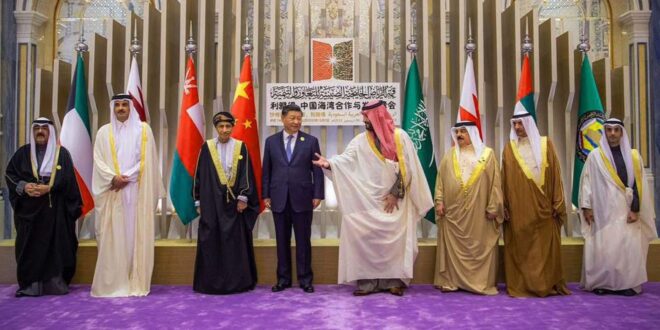Xi Jinping called China and Gulf nations ‘natural partners’ and urged regional leaders to be partners in promoting unity, development, and security
China’s president Xi Jinping urged Gulf nations to use the Shanghai Petroleum and National Gas Exchange as a platform to receive payments of oil and gas using the Chinese yuan instead of the US dollar during a historic summit with the heads of the Gulf Cooperation Council (GCC) states on 9 December.
“China will continue to import large quantities of crude oil from GCC countries, expand imports of liquefied natural gas, strengthen cooperation in upstream oil and gas development, transportation and refining, and make full use of the Shanghai Petroleum and National Gas Exchange as a platform to carry out yuan settlement of oil and gas trade,” Xi said in his keynote speech at the China-GCC summit which included the leaders of Saudi Arabia, the UAE, Qatar, Bahrain, Kuwait, and Oman.
In addition, he said, China would carry out local currency swap cooperation, build working mechanisms for bilateral commercial and investment cooperation, and expand digital currency cooperation.
“China is willing to carry out financial regulatory cooperation with GCC countries, facilitate GCC enterprises to enter China’s capital market, establish a joint investment association with GCC, support sovereign wealth funds of both sides to cooperate in various forms,” Xi said.
He also called on China and GCC nations to be partners in promoting unity, development, and security in West Asia.
Xi travelled to Riyadh this week and on Thursday held meetings with Crown Prince Mohammed bin Salman (MbS) and King Salman, as the two sides signed a “strategic partnership” agreement, according to CGTN.
In a joint statement, Xi and MbS stressed the importance of maintaining stability in world oil markets in the face of the global energy crisis, and pledged to “explore common investment opportunities” in various energy fields, such as the petrochemical sector, “nuclear energy for peaceful purposes” and in the development of artificial intelligence, according to Xinhua news agency.
The Chinese’s president historic visit to the Gulf comes at a time of historic low relations between Riyadh and Washington in the aftermath of an oil production cut by OPEC+ — which is made up of OPEC and non-OPEC nations, including Russia.
Despite intense lobbying by the White House to delay the decision, the oil producing bloc moved to cut production levels by two million barrels per day (bpd) — sending US President Joe Biden scrambling to release oil from the dwindling Strategic Petroleum Reserve (SPR) in order to manipulate market prices.
On 4 December, OPEC+ member states agreed to stick to their oil output reduction targets over fears of a slowing Chinese economy, the G7 price cap on Russian oil, and increasing rate hikes by the US Federal Reserve (FED).
Meanwhile, Moscow said that it would be no longer delivering oil to Europe as a response to a G7-imposed price cap, while several OPEC ministers claim that such a policy would have no impact regardless, as Russia is selling most of its oil to the Asian markets.
 Eurasia Press & News
Eurasia Press & News



